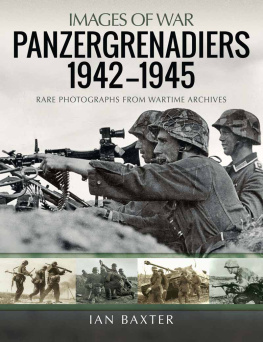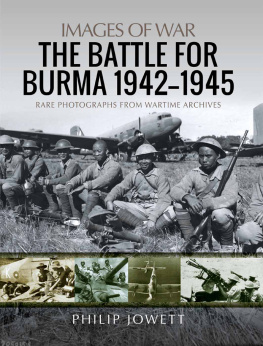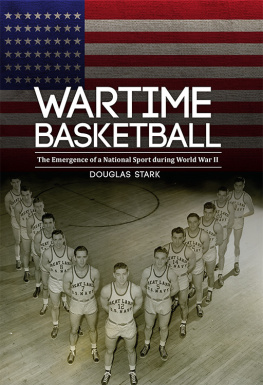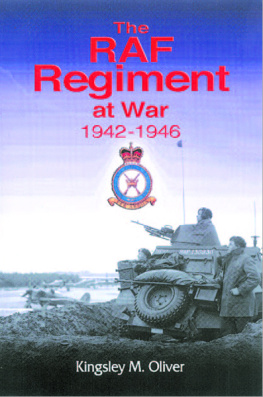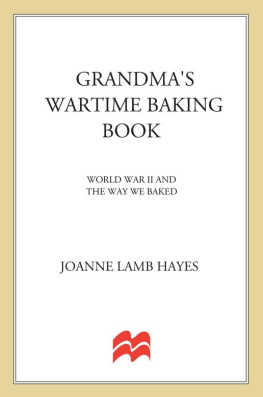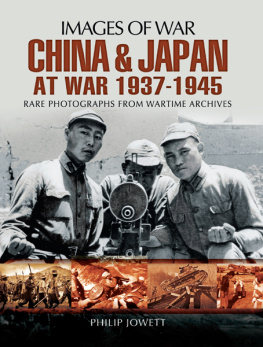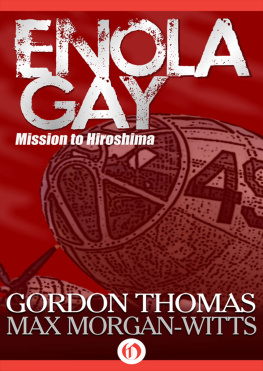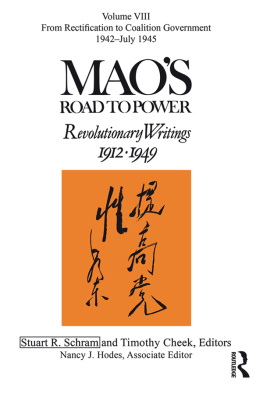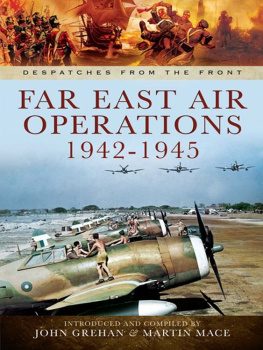
This edition is published by PICKLE PARTNERS PUBLISHINGwww.pp-publishing.com
To join our mailing list for new titles or for issues with our bookspicklepublishing@gmail.com
Or on Facebook
Text originally published in 1945 under the same title.
Pickle Partners Publishing 2016, all rights reserved. No part of this publication may be reproduced, stored in a retrieval system or transmitted by any means, electrical, mechanical or otherwise without the written permission of the copyright holder.
Publishers Note
Although in most cases we have retained the Authors original spelling and grammar to authentically reproduce the work of the Author and the original intent of such material, some additional notes and clarifications have been added for the modern readers benefit.
We have also made every effort to include all maps and illustrations of the original edition the limitations of formatting do not allow of including larger maps, we will upload as many of these maps as possible.
WARTIME MISSION IN SPAIN,
1942-1945
BY
CARLTON J. H. HAYES
Late American Ambassador to Spain
TABLE OF CONTENTS
Contents
TABLE OF CONTENTS
DEDICATION
To
E. C. H., M. E. H., and C, J. J. H.
WHO SHARED AND
IMMEASURABLY AIDED
THE MISSION
PREFATORY NOTE
In the following pages I present a personal account of my diplomatic mission in Spain from May, 1942, to January, 1945. It deals only incidentally with Spains internal affairs. Its central concern is with American policy toward Spain during those three wartime years, and with Spains response.
The book is not official, and has not been written as an apologia for an Ambassador or for the State Department or for Spain. It is, rather, an historians candid and factual record of what he saw and knew at first hand. Now that the war is happily over, there would seem to be no reason, either military or diplomatic, why this record should not be disclosed. It should serve to dissipate some of the dense fog which propaganda and ignorance have cast over the relations of Spain with the two sets of belligerents and to let in some light on an important aspect of American foreign policy.
In writing the book, I have relied upon a detailed personal diary I kept during my three years in Spain, upon contemporaneous memoranda of conversations, upon personal correspondence with the President and others, and upon a trained historical memory. I have not utilized any documents of the State Department, except in so far as they have elsewhere been published, or as paraphrased extracts of them were incorporated in my personal diary. In the latter instances, I have indicated them usually by single quotation marks, in order to warn the reader that the quotations do not reproduce the exact form or wording of the originals.
Some of the statements in the book might have been more strongly buttressed, if I could have quoted from the archives of the State Department. The Department was naturally reluctant to afford me any special privileges or to appear to lend official countenance to r what I might write. The alternative would have been for me to submit my manuscript to review and possible censorship by officials of the Department, and this I was unwilling to do, and have not done. It is preferable that the account be entirely mine. I believe, however, that if and when, at some future time, the official records are open to the public, they will but confirm, in all essential respects, the accuracy of the following narrative.
Let me add that with the State Department, as with the President, my relations, both personal and official, were always pleasant and agreeable. About two or three matters I thought the Department, or certain of its officials, made tactical errors, and I have frankly said so and explained what they were in the course of the story. But they were the exception, not the rule. On the whole, I have only respect and admiration for our Department of State and for our Foreign Service, and I esteem it an honor to have been, during trying times, a collaborator with them.
Carlton J. H. Hayes
Jericho Farm
Afton, New York
September 15, 1945
CHAPTER IHOW I HAPPENED TO GO TO SPAINMarch to May, 1942
I
Since 1910 I had been a professor of modem European history in Columbia University. International law had been one of the subjects I had previously presented for the doctorate; and I continued to take a lively interest in international relations, especially after I, along with several million other Americans, was drawn, as active participant, into the First World War. That experience taught me the practical futility of isolationism for the United States.
I was henceforth a convinced and outspoken advocate of the League of Nations and of any agency or measure which might forward the cause of collective security and lessen the danger of another World War in which many more millions of Americans were sure to be involved. It seemed to me then, and it still does, that we who were decried in the partisan strife of 1920 as idealists and dreamers were far more realistic than those realists who wrecked the League of Nations and pursued narrowly nationalist ends.
Unfortunately for the present generation, there proved to be more realists in those days than idealists. From the first advent of Fascism and Nazism in the 1920s and the first aggression of Japanese militarism in Manchuria in the early 1930s, it should have been obvious that a Second World War, of even greater dimensions than the First, was in the offing. Some of us recognized and warned of the peril. I did my little bit. {1}
The Second World War broke with Hitlers Blitzkrieg against Poland in September, 1939. Followed in due course, less than two yean later, the naval and air blitz at faraway Pearl Harbor; and in December, 1941, the United States found itself, to its surprise and consternation, at war with the embattled and hitherto victorious Axis Powers of Germany, Italy, and Japan.
II
On March 17, 1942, I received in my study at the University a letter, dated March 16 and marked personal and confidential, from the Under Secretary of State, Mr. Sumner Welles, who was Acting Secretary during a temporary absence of Mr. Cordell Hull. It read: The President has asked me to have an informal talk with you regarding a possibility which he is now considering. Unfortunately, at the present moment, it is impossible for me to leave Washington, and I wonder, therefore, if it would be convenient for you, within the next few days, to come down to Washington to have a brief talk with me regarding the matter. I shall be happy to arrange an appointment any day that proves convenient for you, and I shall appreciate it if you will be kind enough to telegraph me the day before you are planning to come so that a time can be set aside.
I naturally speculated on what the possibility might be which the President was considering, but with meager results. The more I thought about it, the more mystified I became. I knew Mr. Welles, and in 1936 I had received from him an invitation to be one of the American delegates to the Pan-American Conference in Buenos Aires, which I had then declined. Very recently, indeed just a few days before this latest letter from Mr. Welles, one of his associates, Mr. Charles A. Thomson, the Chief of the Division of Cultural Relations, had asked me to make a two to three months visit to Brazil. Could the President be considering me for some special mission in South America? That was the nearest I could guess as to what was in store for me.




